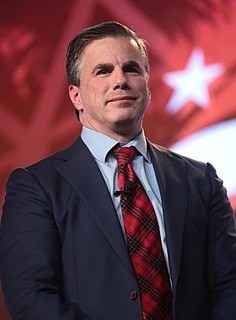A Quote by Jeff Duncan
The American people deserve answers about Benghazi before we move forward with military involvement in Syria's civil war.
Related Quotes
The question's whether or not there's an American interest in the Civil War [in Syria]. The question is whether or not a military strike on [Bashar] Assad will cause him to be encouraged to use more weapons or discouraged. It's easy enough to say - and the president [Barack Obama] says though this will teach him a lesson - but his military strike is intended not to target him individually, not to bring about regime change.
I think I have great knowledge of - for military, and I think I have better vision for Syria than a lot of the so-called great military geniuses that are saying how to fight the war with Syria. In my opinion, they're doing just the opposite. Are we going to start World War III over Syria? Are we going to be there for the next 40 years?
Syria is a civil war. Syria began as a popular uprising, just like the other experiences in the Arab Spring, with a repressive government that responded by basically killing the protesters. It's not a genocide, it's a war, and there's a difference. Genocide is a preplanned attack on people because of who they are. This is a interstate conflict.
I think there's evil on both sides [of Syria], and I think that's one reason I don't want to be involved in civil war. I see things in personal terms. I just can't see sending one of my sons - or your son or daughter - to fight in a civil war, where on one side we have a dictator, who in all likelihood gassed his people.
The intelligence community is so vast that more people have top secret clearance than live in Washington. The U.S. will spend more on the war in Afghanistan this year, adjusting for inflation, than we spent on the Revolutionary War, the War of 1812, the Mexican-American War, the Civil War and the Spanish-American War combined.
What it targets is not something that's really looked at a lot in terms of the war. This is stuff that's off the beaten path in terms of what we think of every time you start a Civil War history or a Civil War presentation. It's usually about the military and the soldiers and all that stuff. And this is not. It's the backdrop to a place and a time and circumstances that didn't have anything to do with that.
If the American people had known the truth - that Barack Obama, Hillary Clinton and other top administration officials knew that the Benghazi attack was an al-Qaida terrorist attack from the get-go - and yet lied and covered this fact up - Mitt Romney might very well be president. These documents also point to connection between the collapse in Libya and the ISIS war - and confirm that the U.S. knew remarkable details about the transfer of arms from Benghazi to Syrian jihadists.
I worry that I may have overstated the impact of Civil War on the utopians. By the time the Civil War comes, most of the communities were quite separated from the wider American society. Their rhetoric is still about transforming the world, but they're not having that much traffic with their neighbors.






























